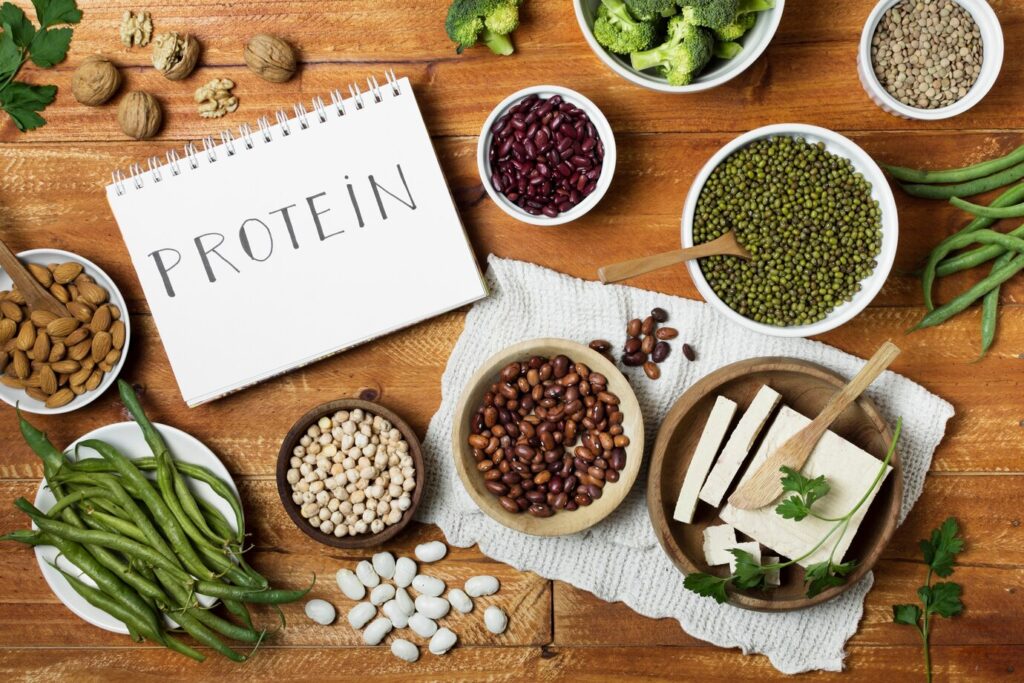In a world where health and wellness are becoming increasingly paramount, the term “superfood” has gained significant traction. From social media influencers to nutritionists, everyone seems to be advocating for the incorporation of these nutrient powerhouses into our diets. But what exactly are superfoods, and what makes them so special? In this blog, we’ll delve into the world of superfoods, exploring their health benefits and why you should consider adding them to your diet.
Understanding Superfoods
Superfoods are essentially nutrient-dense foods that are particularly rich in vitamins, minerals, antioxidants, and other beneficial compounds. They are often touted for their potential health-promoting properties and are believed to offer a wide range of benefits, from boosting immunity to reducing the risk of chronic diseases.
While there is no official definition of what constitutes a superfood, many common examples have gained popularity due to their impressive nutritional profiles and purported health benefits. Some well-known superfoods include berries (such as blueberries, strawberries, and acai berries), leafy greens (like kale and spinach), nuts and seeds (such as almonds, chia seeds, and flaxseeds), fatty fish (like salmon and mackerel), and various whole grains (including quinoa and oats), among others.
Health Benefits of Superfoods
The appeal of superfoods lies not only in their delicious flavors but also in the numerous health benefits they offer. Let’s take a closer look at some of the key advantages of incorporating these nutrient-rich foods into your diet:
- Rich in Antioxidants
Many superfoods are packed with antioxidants, which are compounds that help protect the body against oxidative stress and damage caused by free radicals. Examples of antioxidant-rich superfoods include berries, dark chocolate, and certain nuts. By consuming these foods regularly, you can support your body’s natural defense mechanisms and reduce the risk of chronic diseases such as heart disease, cancer, and neurodegenerative disorders.
- Supports Heart Health
Several superfoods have been shown to promote heart health by lowering cholesterol levels, reducing inflammation, and improving blood pressure. Fatty fish like salmon, for instance, is an excellent source of omega-3 fatty acids, which are known to support cardiovascular function and reduce the risk of heart disease. Additionally, foods rich in soluble fiber, such as oats and legumes, can help lower LDL (bad) cholesterol levels and improve overall heart health.
- Boosts Brain Function
Certain superfoods are believed to support cognitive function and protect against age-related decline in brain health. For example, fatty fish like salmon and trout are rich in omega-3 fatty acids, which are essential for brain development and function. Other brain-boosting superfoods include blueberries, which are high in antioxidants called flavonoids that may help improve memory and cognitive performance.
- Enhances Digestive Health
A diet rich in superfoods can contribute to better digestive health by providing a diverse array of nutrients and promoting the growth of beneficial gut bacteria. Foods like yogurt, kefir, and other fermented foods contain probiotics, which are beneficial bacteria that support gut health and digestion. Additionally, fiber-rich superfoods like beans, lentils, and whole grains can help regulate bowel movements and prevent constipation.

- Supports Weight Management
Many superfoods are low in calories but high in nutrients, making them ideal choices for those looking to manage their weight effectively. Leafy greens like kale and spinach, for instance, are incredibly nutrient-dense while being low in calories, making them excellent options for filling up without consuming excess calories. Additionally, foods high in protein, such as lean meats, fish, eggs, and legumes, can help promote feelings of fullness and support weight loss efforts.
- Boosts Immunity
A strong immune system is essential for fighting off infections and maintaining overall health and well-being. Superfoods like citrus fruits, bell peppers, and broccoli are rich in vitamin C, a nutrient known for its immune-boosting properties. Other superfoods, such as garlic and ginger, possess antimicrobial and anti-inflammatory properties that can help ward off infections and support immune function.
Incorporating Superfoods Into Your Diet
Now that we’ve explored the numerous health benefits of superfoods, you may be wondering how to incorporate them into your diet effectively. Here are some practical tips to help you make the most of these nutrient-rich foods:
- Start Slowly
If you’re new to superfoods, it’s essential to start slowly and gradually incorporate them into your diet. Trying to overhaul your eating habits overnight can be overwhelming and unsustainable. Instead, focus on adding one or two superfoods to your meals each week and gradually increase the variety over time.
- Experiment with Recipes
One of the best ways to incorporate superfoods into your diet is by experimenting with new recipes and cooking methods. Whether you’re adding berries to your morning smoothie, tossing kale into a salad, or incorporating quinoa into a stir-fry, there are countless ways to incorporate these nutrient powerhouses into your favorite dishes.
- Be Mindful of Portions
While superfoods offer numerous health benefits, it’s essential to be mindful of portion sizes, especially if you’re watching your calorie intake. Even nutrient-dense foods can contribute to weight gain if consumed in excess. Pay attention to portion sizes and aim for a balanced diet that includes a variety of foods from all food groups.
- Choose Whole Foods
When possible, opt for whole, minimally processed superfoods over their processed counterparts. Whole foods retain more of their natural nutrients and are generally healthier choices overall. For example, choose fresh berries over sugary fruit juices or whole grains like brown rice and quinoa over refined grains like white rice and pasta.
- Stay Hydrated
Don’t forget to stay hydrated throughout the day, as water is essential for overall health and well-being. While superfoods can provide valuable nutrients, they should complement a well-rounded diet that includes plenty of water-rich foods like fruits and vegetables.
Final Thoughts
Superfoods are undoubtedly an excellent addition to any healthy diet, offering a wide range of nutrients and health benefits. By incorporating nutrient-rich foods like berries, leafy greens, nuts, seeds, fatty fish, and whole grains into your meals, you can support your overall health and well-being and reduce the risk of chronic diseases. Remember to start slowly, experiment with recipes, and prioritize whole, minimally processed foods for optimal health benefits. With a balanced and varied diet that includes plenty of superfoods, you can nourish your body and thrive in the long term.












